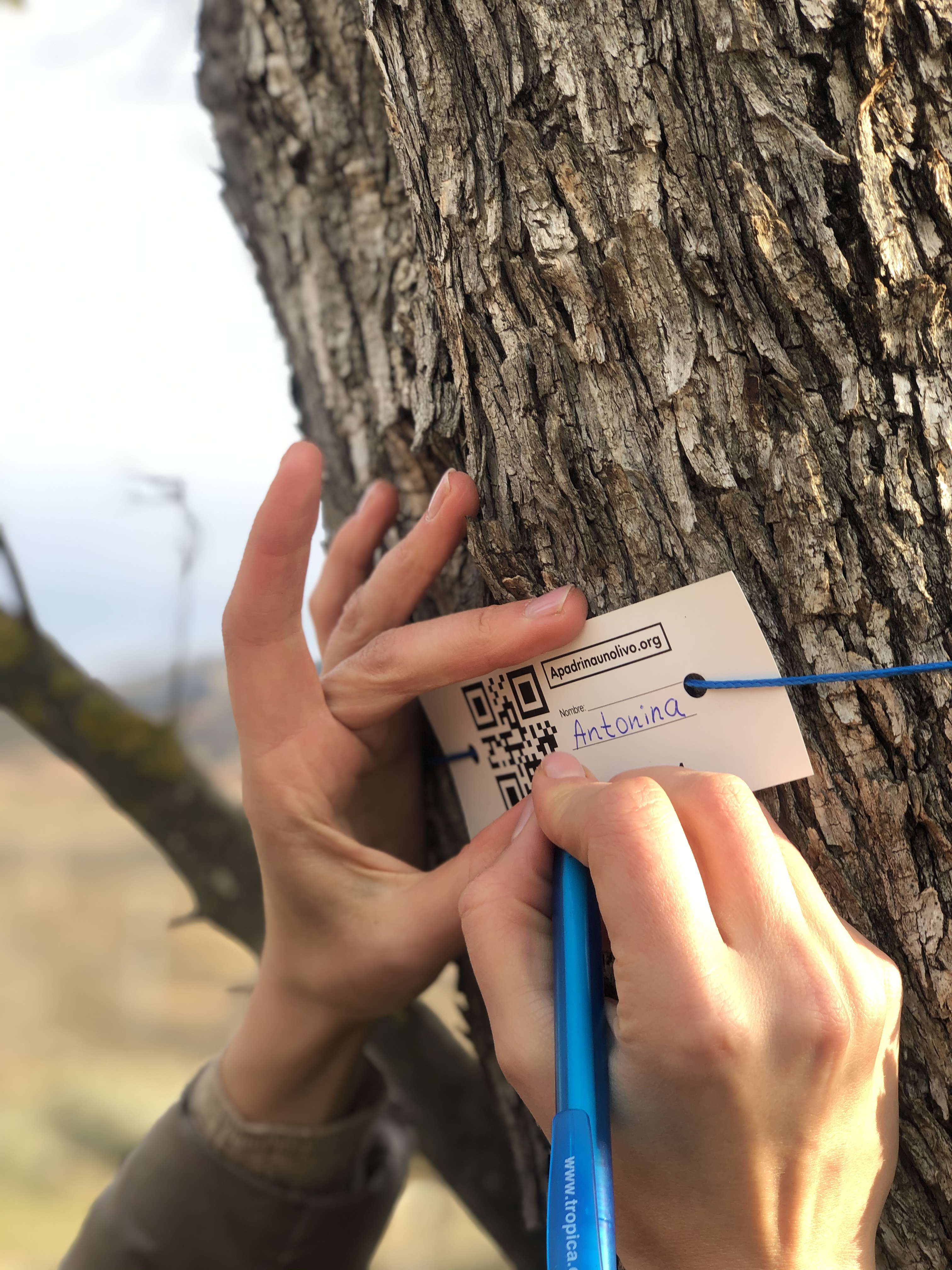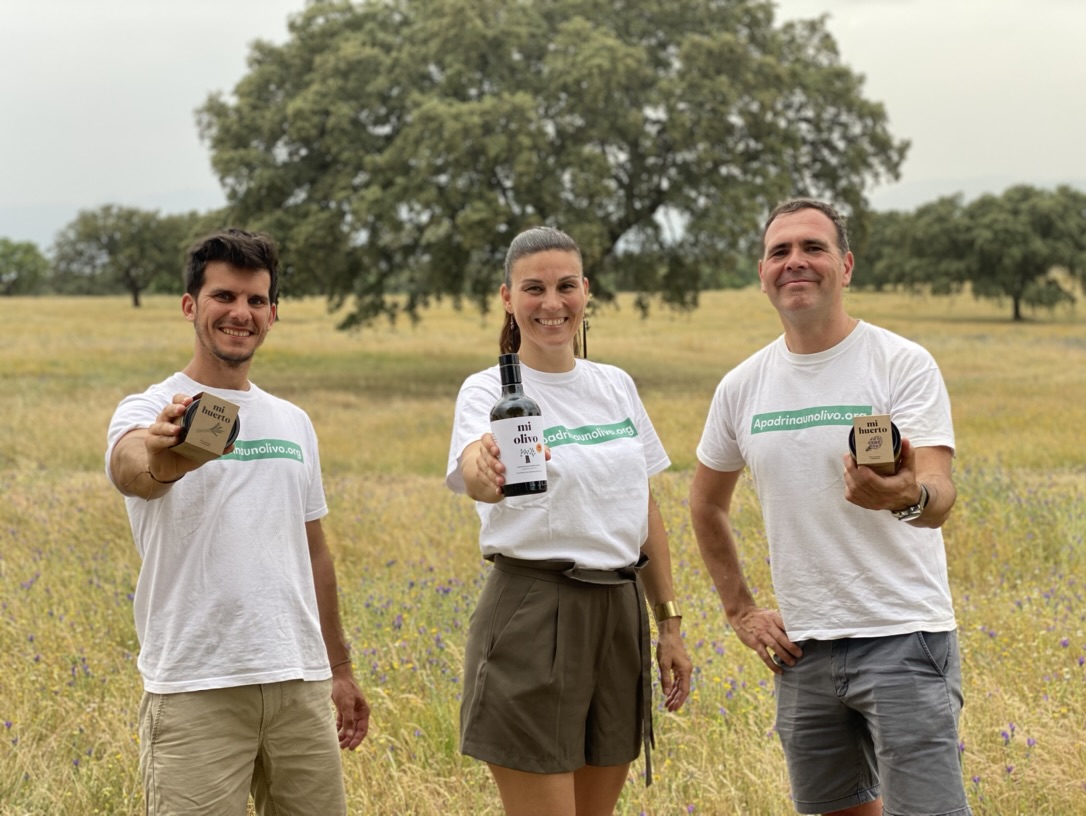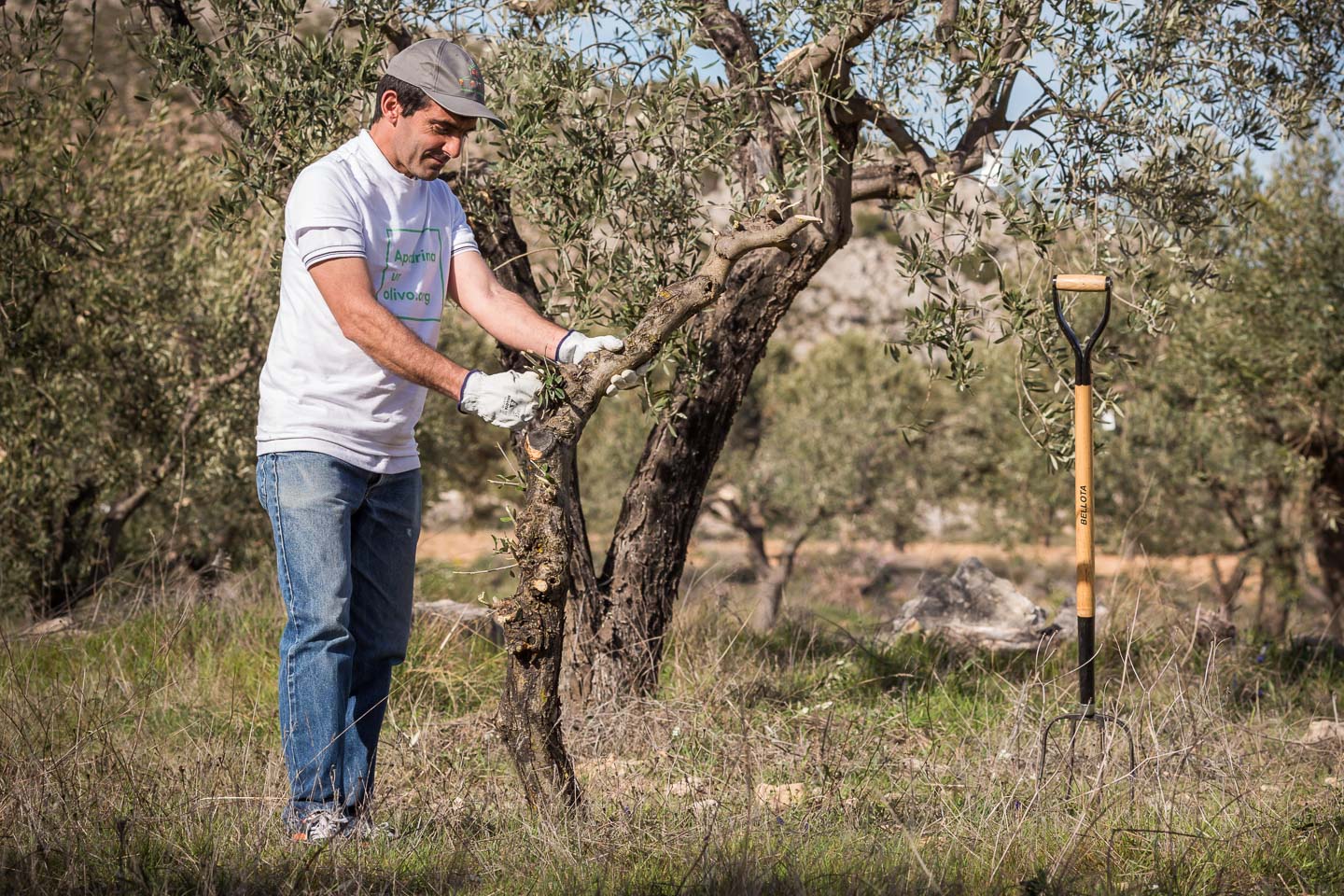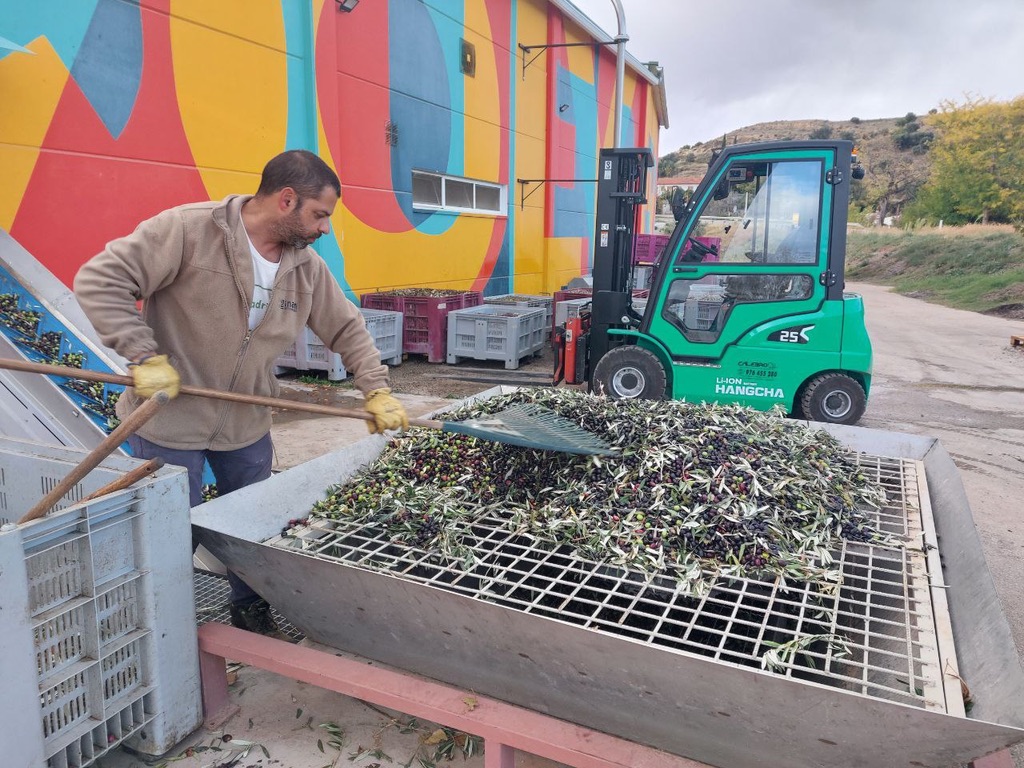
Commitment to the future of our towns
Apadrinaunolivo.org (Sponsor an olive tree) is a project that has been promoting rural development for 9 years through the recovery of natural and endogenous resources in the area, as the basis for a sustainable and solidary economy. Jose Alfredo Martín Piñas talks about the opportunities for growth in the territory projected by this model over the coming years with the support of Endesa in the recovery of 60,000 olive trees.
By Jose Alfredo Martín
Apadrinaunolivo.org (Sponsor an olive tree) is a model for rural entrepreneurship that was founded in 2014 to generate sustainable rural development in sparsely populated areas. It generates a triple balance and a high social impact, within the framework of our 5 S plan (in Spanish), Social, Solidary, Sustainable, Healthy and Solar.
In 2023 and over the next five years, from Apadrinaunolivo.org we will be involved in new challenges. We are an integral part of Endesa's social-economic plan as an initiative to redesign the future of the Andorra-Sierra de Arcos region after the closure of the thermal power plant, with the "From the solar garden to the table" project. A proposal which will enable us to continue to give life and work to the villages that have been affected by this situation. To achieve this stimulation, Endesa will support us in the recovery of 60,000 olive trees, which means the generation of 96 jobs with different seasonal aspects.
A great opportunity because it involves dimensioning the internal structure for all areas of the project: fields, olive oil mills and canning. An exciting challenge to achieve sustainability in the next 6 years and continue contributing to our main purpose which is rural development, because it involves transformation with great expectations with a view to settling population in a territory which is currently threatened by a significant rural exodus. Just as it is a challenge for us to continue to demonstrate that there is a possible future for the rural environment with a social entrepreneurship initiative that highlights the importance of indigenous resources to generate sustainable rural development.
“Endesa will support us in the recovery of 60,000 olive trees which will lead to the generation of 96 jobs”.
After years of talks, Endesa has opted for this model because of the stability it brings to a territory in a region that is currently undergoing transition. Our innovation consists of us being able to highlight the importance of crops that lie abandoned as a result of depopulation, involving society and companies through the platform, triggering a positive social, economic and environmental impact. A model that has been recognised by Forbes magazine in a number of articles including one entitled "The list of the 100 most creative models in the business world".
Recovery of natural resources, an engine for sustainable economies
It all started with a target to recover 100,000 abandoned olive trees in Oliete, Teruel. A village with just 340 inhabitants and few opportunities for social-economic development. The solution? We are looking for sponsors to go to the website and choose an olive tree to recover, name and monitor in its recovery process. Their collaboration will be rewarded with 2 litres of olive oil.
With their contribution we contract farmers, the vast majority new settlers, who will then be able to work the olive trees that have very low profitability in the first 5 years of recovery. We also give an opportunity to people with intellectual disabilities, those in social-labour exclusion, women in the rural environment with few opportunities to access employment and young people. So with Endesa's leverage to recover 60,000 olive trees over the next 5 years, the number of workers in the field can be increased, and this in turn will have an impact with an increase in olive production.
In these 9 years, we have employed 22 families. Their children have enabled the closure of the school in Oliete and Alacón to be avoided. The shops and restaurants in the area enjoy annual tourism by 3,000 sponsors, who come to visit their olive trees. These annual donations by sponsors have already led to the recovery of 15,000 olive trees. The impact of the conservation of olive groves on the area is not only social but also environmental, contributing to the mitigation of 6.9 tons of CO2. This model also acts under the custody of the territory, that is, a set of strategies and instruments designed to involve the owners and users of the territory in the conservation and good use of natural, cultural and landscape values and resources. Figures that we hope, with this new plan, will increase and provide stability in the coming years, thus creating a new diversified economic model based on the territory's natural resources and renewable energies.
“A social entrepreneurship initiative which highlights the importance of indigenous resources to generate sustainable rural development”.
Another of the pillars that will also be transformed is our fair trade brand MiOlivo.org, a space where we gather different products such as extra virgin olive oil, fruit of the recovery of centenary olive trees, and canned vegetables. The product sold, Mi Olivo, the brand of extra virgin olive oil, comes from the production in our mill of 150 small farmers who are paid a price that makes their farms profitable and more sustainable. This generates well-being and avoids crops being abandoned in the future due to the terrible market conditions. Similarly, in 2021 we began the recovery of Alacón, a village near Oliete, and its abandoned vegetable gardens, through the brand of canned products "Mi Huerto". Here there will also be transformation by employing personnel to work in the gardens and on the orders.
Endesa has also used the Apadrinaunolivo.org team as a part of its renewable energy strategy in Portugal, with the aim of reactivating a sustainable economy, under the name "Apadrinha uma Oliveira". This involves initiating a replication of this innovative model in Portugal, in the area around Abrantes, where the scenario is very similar to that suffered by Oliete and where the rural exodus is causing crops to be frequently abandoned in an area where you will find the oldest olive tree in the Iberian Peninsula, el Mouchao, which is 3,350 years old.
We are very hopeful that our inspiring model based on fair, ecological, digital and inclusive transition, will help rural areas to be in the digital vanguard by joining Endesa's plan and all the projects involved in the territory.
A great opportunity because it involves dimensioning the internal structure for all areas of the project: fields, olive oil mills and canning. An exciting challenge to achieve sustainability in the next 6 years and continue contributing to our main purpose which is rural development, because it involves transformation with great expectations with a view to settling population in a territory which is currently threatened by a significant rural exodus.
After years of talks, Endesa has opted for this model because of the stability it brings to a territory in a region that is currently undergoing transition. Our innovation consists of us being able to highlight the importance of crops that lie abandoned as a result of depopulation, involving society and companies through the platform, triggering a positive social, economic and environmental impact. A model that has been recognised by Forbes magazine in a number of articles including one entitled "The list of the 100 most creative models in the business world".
It all starts by recovering 100,000 abandoned olive trees in Oliete, Teruel. A village with just 340 inhabitants and with no social-economic future. The solution? We are looking for sponsors to go to the website and choose an olive tree to recover, name and monitor in its recovery process. Their collaboration will be rewarded with 2 litres of olive oil.
With their contribution we contract farmers, the vast majority new settlers, who will then be able to work the olive trees that have very low profitability in the first 5 years of recovery.
There are already 22 families employed on the project. Their children have enabled the closure of the school in Oliete and Alacón to be avoided. The shops and restaurants in the area enjoy annual tourism by 3,000 sponsors, who come to visit their olive trees. These annual donations by sponsors have already led to the recovery of 15,000 olive trees. The impact of the conservation of olive groves on the area is not only social but also environmental, contributing to the mitigation of 6.9 tons of CO2. This model also acts under the custody of the territory, that is, a set of strategies and instruments designed to involve the owners and users of the territory in the conservation and good use of natural, cultural and landscape values and resources.
Finally, with its fair trade brand MiOlivo.org, a space which brings together different products such as extra virgin olive oil, fruit of the recovery of centenary olive trees, and canned vegetables. The product sold, Mi Olivo, the brand of extra virgin olive oil, comes from the production in our olive-oil mill by 150 small farmers who are paid a price that makes their farms profitable and more sustainable. This generates well-being and avoids crops being abandoned in the future due to the terrible market conditions. With a similar purpose, in 2021 the recovery of Alacón, a town near Oliete, and its abandoned orchard, began through the canning brand "Mi Huerto".
Endesa has also used its olive tree recovery project as its axis in Portugal, with the aim of reactivating a sustainable economy. This began with a replication of the innovative "Apadrinaunolivo.org" model in Portugal, in the area of Abrantes, where the scenario is very similar to that in Oliete, where a rural exodus is frequently the cause of crops being abandoned.
In 2023 and over the next five years, Apadrinaunolivo.org will be involved in new challenges. They are part of Endesa's social-economic plan as an initiative to redesign the future of the Andorra-Sierra de Arcos region after the closure of the thermal power plant. The aim is to give life and work to the villages affected by this situation. To achieve this stimulation, Endesa will provide support in the recovery of 60,000 olive trees, which means the generation of 100 jobs with different seasonal aspects.
A great opportunity that, according to Jose Alfredo Martín, co-founder of the project, "involves dimensioning the internal structure of all the areas: fields, olive oil mills and canning. An exciting challenge to achieve sustainability in the next 6 years and continue contributing to our main purpose which is rural development, because it involves transformation with great expectations with a view to settling population in a territory which is currently threatened by a significant rural exodus".
Endesa has also used its olive tree recovery project as its axis in Portugal, with the aim of reactivating a sustainable economy. This began with a replication of the innovative "Apadrinaunolivo.org" model in Portugal, in the area of Abrantes, where the scenario is very similar to that in Oliete, where a rural exodus is frequently the cause of crops being abandoned.
Related Content


Children of coal
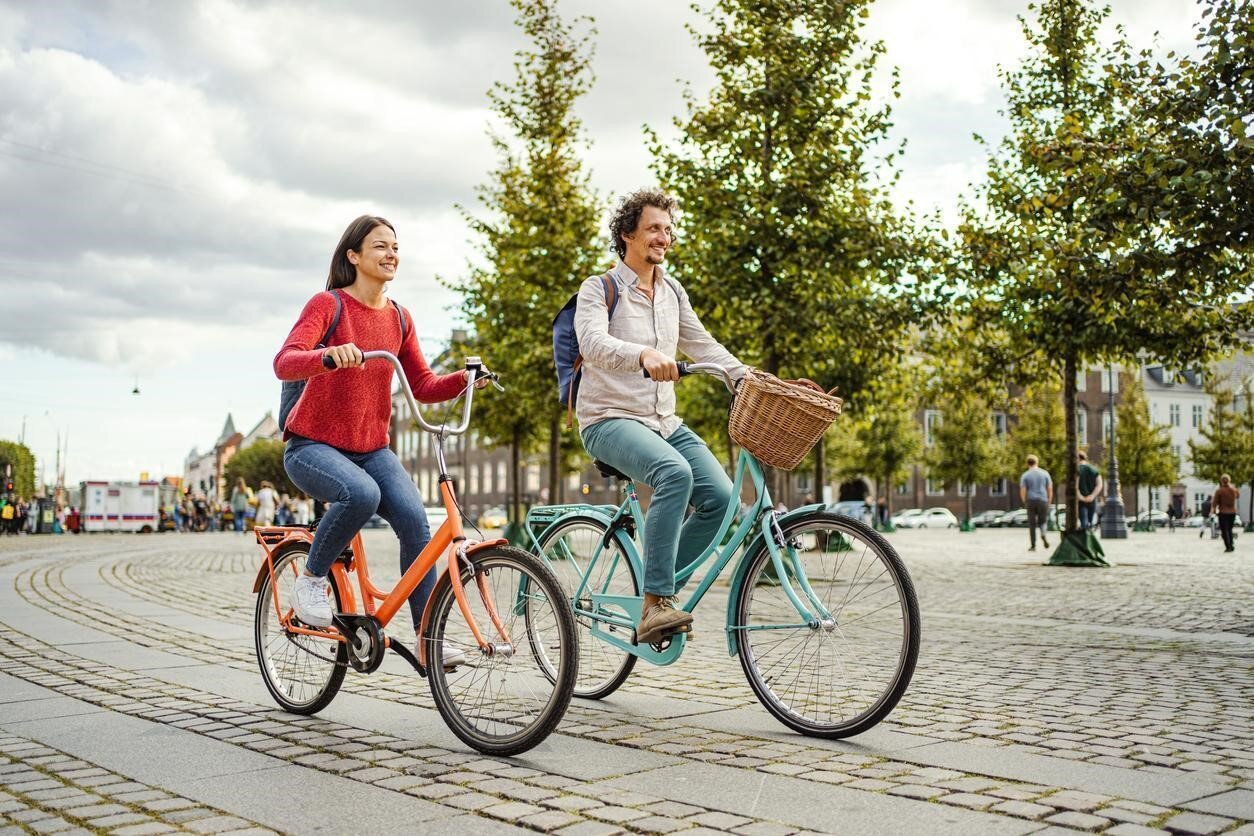
The role of citizens in the energy transition

Litoral, the breeze of change

A well-crafted social plan for Andorra







